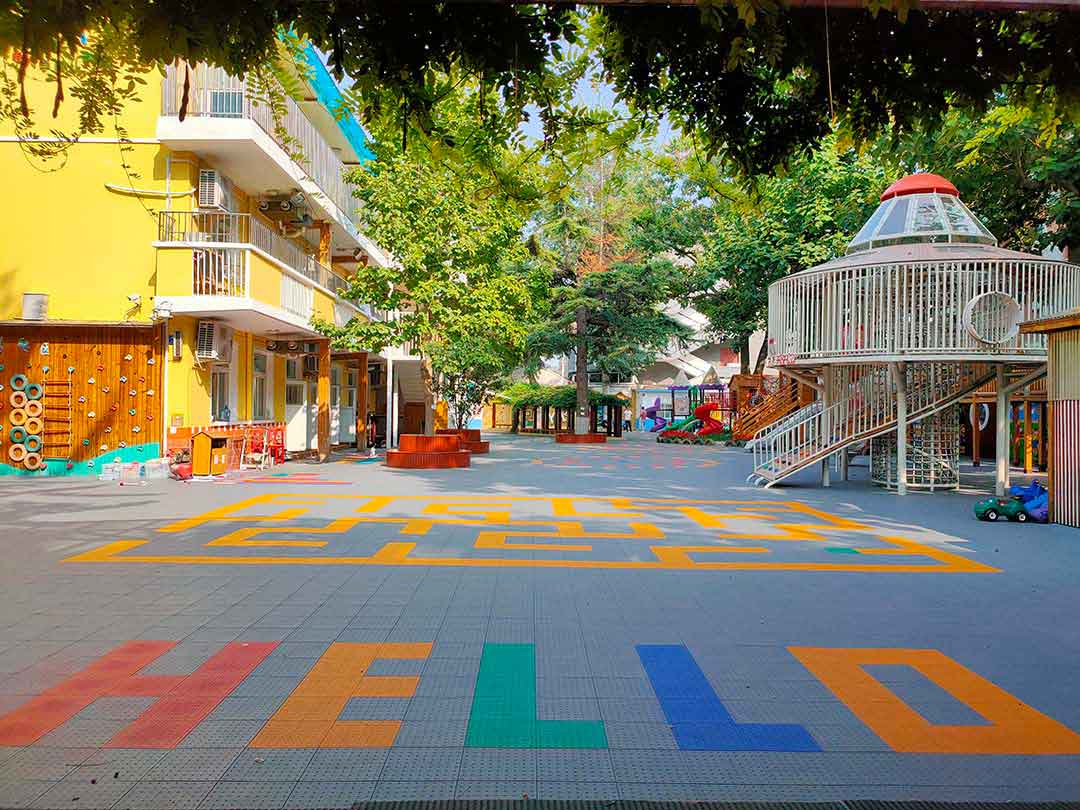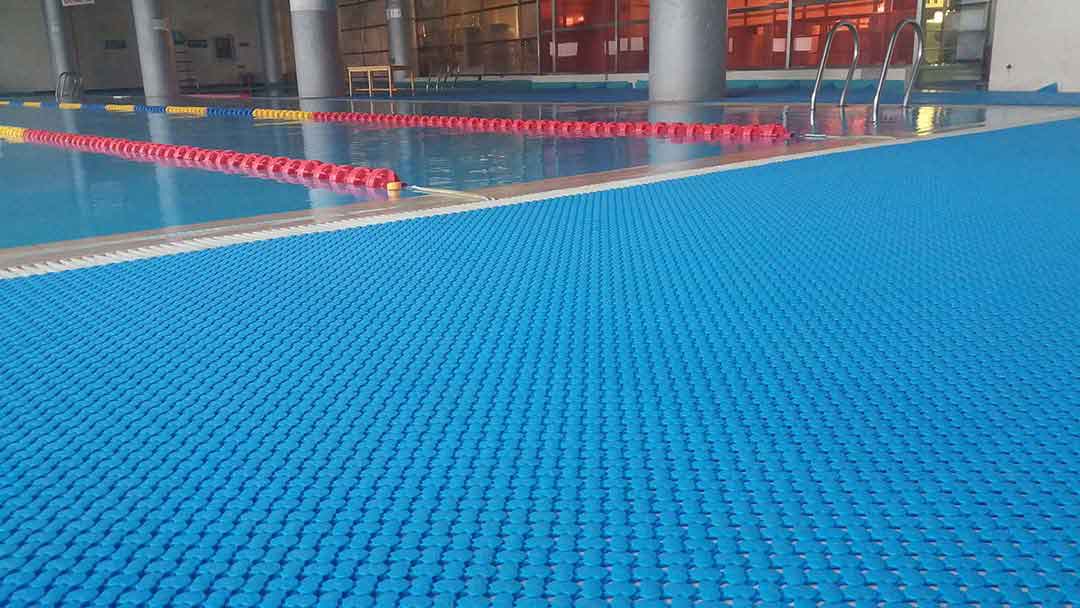When it comes to choosing the right flooring for your space, the choices can seem dizzying. With the rise of innovative materials, two popular flooring options are polypropylene (PP) and polyvinyl chloride (PVC). Both materials have their own unique properties and benefits, but which one is better? In this blog, we’ll dive into the differences between polypropylene and PVC flooring to help you make an informed decision.

● Polypropylene (PP) floor:
Polypropylene flooring, also known as PP flooring, is a thermoplastic polymer that can be used in a variety of applications, including flooring. PP flooring is known for its durability, moisture resistance and ease of maintenance. Because of its ability to withstand heavy use and harsh weather conditions, it is often used in high-traffic areas such as gyms, sports facilities, and outdoor spaces.
One of the main advantages of polypropylene flooring is its resistance to moisture. This makes it ideal for areas prone to spills or moisture, such as kitchens, bathrooms and outdoor patios. PP flooring is also easy to clean and maintain, making it a practical choice for busy homes or commercial spaces.

● PVC floor:
Polyvinyl chloride (PVC) is another popular flooring material. PVC flooring, usually in the form of vinyl tiles or planks, is known for its affordability, versatility, and wide range of design options. PVC flooring is commonly used in residential and commercial spaces due to its cost-effectiveness and ability to mimic the look of natural materials such as wood or stone.
One of the main advantages of PVC flooring is its versatility. It can be installed in almost any room, including basements, kitchens, and living areas. PVC flooring is also available in a variety of styles, colors and patterns, providing endless design possibilities.
● Compare:
When comparing polypropylene flooring to PVC flooring, there are several factors to consider. In terms of durability, polypropylene flooring is known for its high resistance to wear and tear, making it a suitable choice for high-traffic areas. PVC flooring, on the other hand, is also durable but may not be as resilient as polypropylene in extreme conditions.
When it comes to moisture resistance, polypropylene flooring has the upper hand. Its inherent moisture resistance makes it a first choice for outdoor and wet areas. PVC flooring, while waterproof, may not be suitable for areas prone to water accumulation or excessive moisture.
Maintenance is another important factor to consider. Both polypropylene and PVC flooring are relatively easy to clean and maintain, but polypropylene may require less maintenance due to its resistance to staining and moisture.
In terms of environmental impact, polypropylene is considered greener than PVC. Polypropylene is recyclable and can be reused, while PVC is known for its environmental concerns during production and disposal.
To sum up, both polypropylene flooring and PVC flooring have their own advantages and precautions. The choice between the two ultimately comes down to specific needs for space, budget, and environmental considerations. Whether you choose durable polypropylene or versatile PVC, it’s important to weigh the pros and cons of each material to make an informed decision based on your flooring needs.
Post time: May-20-2024
